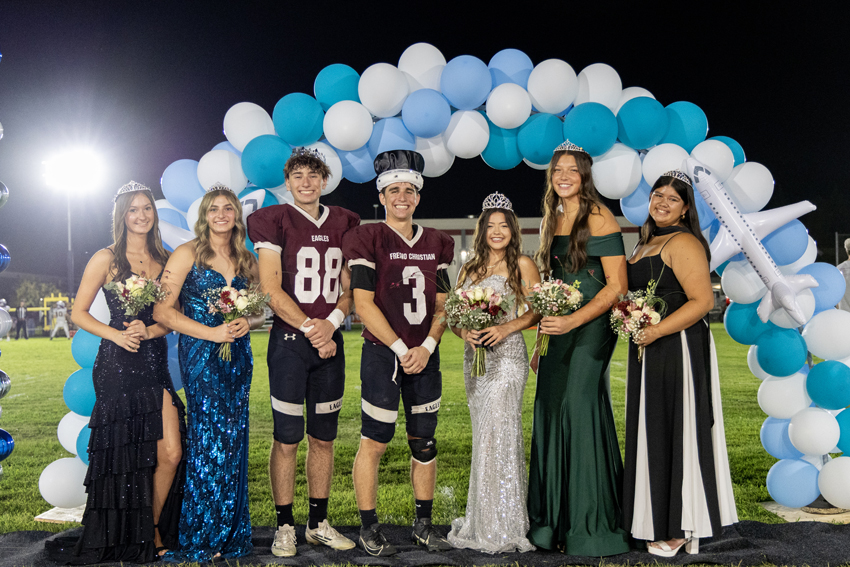“Why would I want to be a journalist?” Although this question often surfaces when approached by publication recruiters, many believe participation in a publications class not only improves literacy but also stimulates media awareness.
?Someone skilled at analyzing literature for themes and finding a focus or main idea for an English paper will find those skills quite useful when writing for the media,? Wendy Wallace, Director of the high school journalism program at the Poynter Institute, said. ?The two disciplines absolutely help one another.?
According to the Indiana University School of Journalism, in a 1998 survey of journalistic educators, about 453,576 high school students in the US are enrolled in a course called ?journalism? and nearly half a million students serve on school media staffs.
?They?ll (those in a publications class) be more engaged at school, more aware of what?s going on, talk to people that they otherwise never would?ve talked to and make friendships that last a lifetime,” Wallace said. “I know, that?s how it worked for me.?
The same survey also found recommendations from English teachers are used in 35.1% of the schools in order to recruit for journalism classes.
?The writing a student does for English class is different from journalistic writing,? Wallace said. ?A good journalist can apply her story planning, writing and organization skills to her English essays. She can write tightly, eliminate extra words and choose words with care, just as she would as a journalist.?
With over 15 years spent working in the business section of the St. Petersburg Times, Wallace has a B.A. in Journalism, an MBA in Marketing and a B.S. in Decision Sciences from Indiana University.
Wallace believes working in school publications hones and refines numerous skills. It also awakens a level of appreciation of the role of media in society and is beneficial no matter the chosen area of profession.
?Working on school publications builds confidence and improves a host of skills, from writing and organization to leadership and teambuilding,? Wallace said. ?They?re great life skills that will help them whatever they do and the experience likely will help them have a richer high school experience, as well.”
Writing skills undergo improvement
Senior Drake Olson joined the Feather staff this year with hopes of improving his word choice, focus and overall writing ability.
“Being in journalism has definitely made me a better writer,” Olson said. “I’ve seen a huge improvement since freshman year, especially with my once excessive use of helping verbs. My writing has become a lot clearer, more focused and effective.”
Vanessa Shelton, Executive Director of the Quill and Scroll Society, affirms Olson’s confidence in the benefits that accompany journalistic writing.
“I believe taking journalism classes and/or joining media staffs can help in overall writing skills even if someone doesn?t possess a ‘knack’ for English,” Shelton said. “Journalism offers a different approach to using and understanding the English language.”
Despite numerous differences between the two subjects, Shelton believes the benefits gained from one reciprocate to the other.
“Some students may not appreciate forms of English literature and that in turn doesn?t motivate their engagement in the language dynamics,” Shelton said. “Practicing a simpler form or more practical form of literature ? journalistic forms ? may be better suited for some students and consequently mean better scores.
“And related, for the student who does well but doesn?t really enjoy writing,” Shelton said, “journalism has other formats of expression: photography, design, web design and broadcast to name a few, that require less writing.”
According to Wallace, publications encompasses journalistic ethics, design, headline writing, interviewing, photojournalism, decisions about coverage and content and diversity. She believes that a “successful” journalist not only masters the fundamentals, but also possesses a drive to educate and inform.
?The best journalists I know want to make a difference in the world,? Wallace said. ?They want to give voice to the voiceless and hold those in power accountable. They seek truth. They tell stories that resonate with people, have universal themes that others can relate to and that will illuminate the human condition.”
In numerous cases, inclusion in a journalism class benefits English grades. Senior Michelle Rose joined the Feather staff in 2004 with hopes of sharpening her writing skills.
“My writing has improved tremendously since my freshman year,” Rose said. “I have a better structural sense of how to write and as a result my grades on essays have improved. I went in confident for the SAT, mainly the essay portion and when I got the results back and saw an 11, I was really proud of myself.
“Journalism allowed me to have great success in English class and essays,” Rose said. “Although as a freshman I had no intentions to continue, the encouragement of classmates and seeing my grade improvement persuaded me to stay. Now I strive to improve wording so I can go further in my writing.”







Maddie Yee • Mar 12, 2010 at 6:52 am
Wow, I can’t believe The Feather put this picture up! Thanks for all the comments guys… Haha, it is pretty funny. I guess it’s natural for me to make those faces when I play sports.
Rachel Fralick looks really intense too! She’s playing soccer this year; I’m really stoked about that!
Katherine Bennett • Mar 12, 2010 at 6:52 am
Maddie looks so beastly! She has the face of a water polo player!
Alexandra Frea • Mar 12, 2010 at 6:52 am
Here is another picture of the Killer at work. Way to go Killer!
(See “Powell Play” for meaning of Killer)
Kristen Rosenthal • Mar 12, 2010 at 6:52 am
Lol, Maddie looks intense… What a beast!